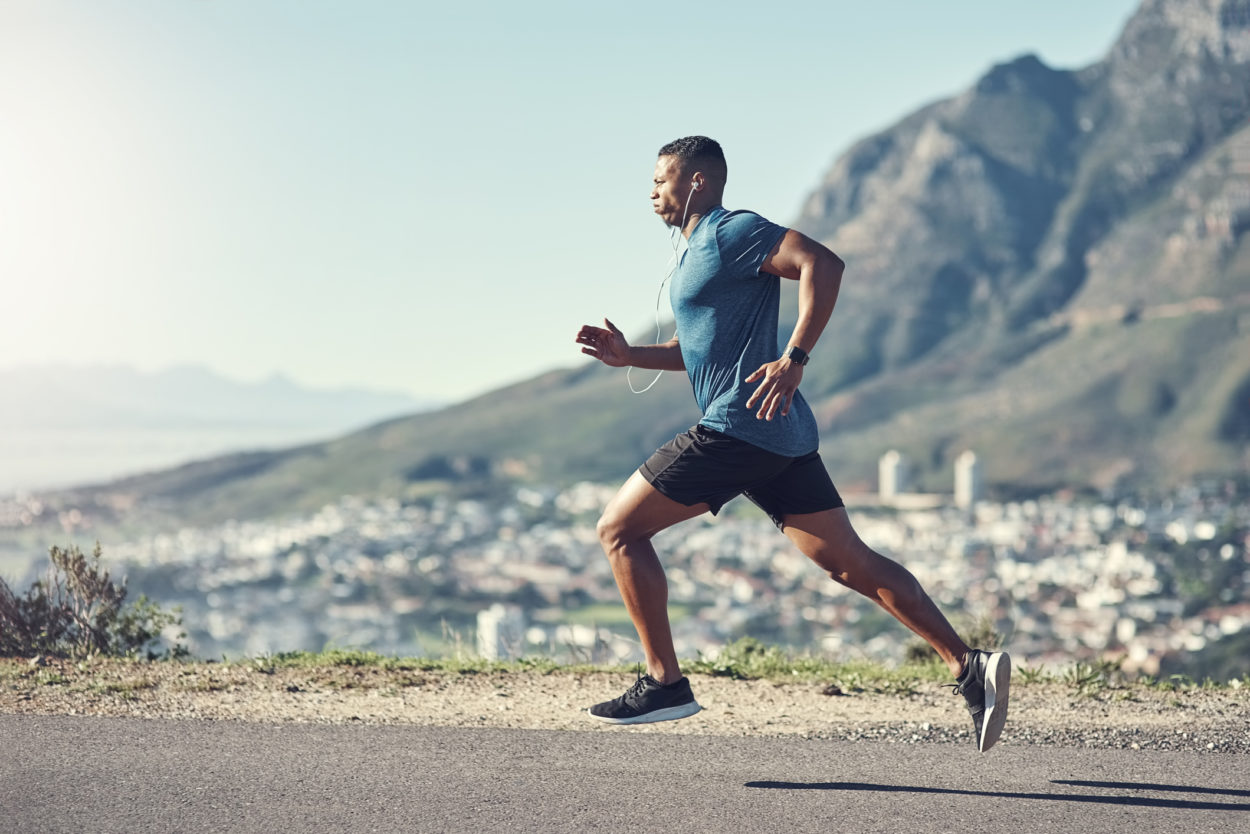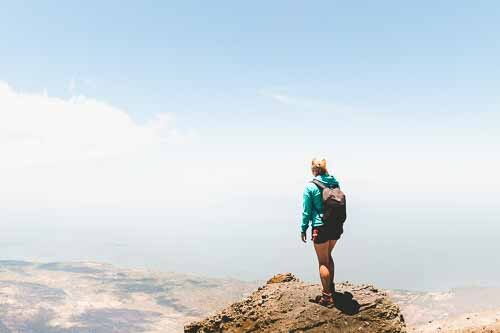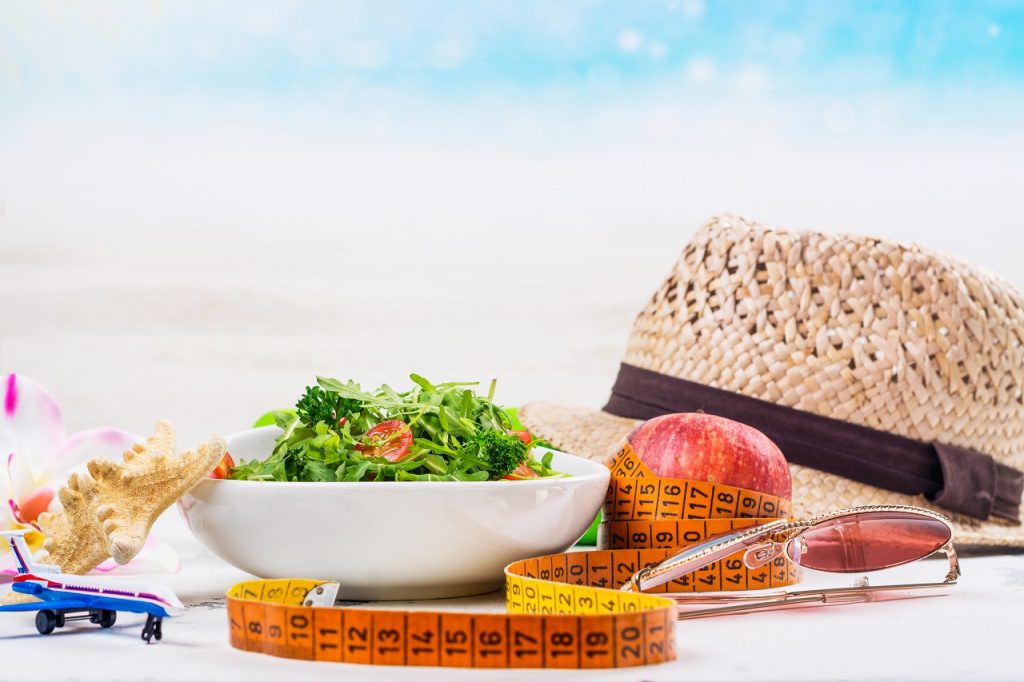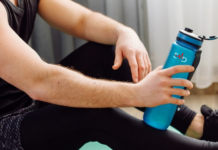Table of Contents
Exercise Daily – Travelling is exhilarating, but maintaining a fitness routine on the go can be challenging. As we globetrot, our health often takes a backseat amidst the excitement. However, integrating fitness into your travel agenda can amplify the thrill while keeping your well-being intact.
Traveling is an exciting adventure that lets you explore new places and cultures. But while you are on the go, it can be challenging to maintain your fitness routine and make healthy choices. In this article, we’ll discuss the importance of staying healthy while traveling and provide tips on how to stay fit and eat well, even when you’re on the road.
Benefits of Fitness While Traveling
Traveling is more than discovering new places; it’s an opportunity to enhance your overall well-being. Incorporating fitness into your travel routine offers numerous advantages beyond physical health.
1. Boosted Energy Levels
Engaging in physical activities during your travels is akin to recharging your internal battery. It infuses you with energy, ensuring you’re ready to explore every facet of your destination without feeling fatigued.
2. Stress Reduction
Amidst the excitement of exploring unfamiliar territories, exercise is a potent stress reliever. It releases endorphins, the body’s natural stress busters, helping combat travel-related anxiety and rejuvenate your mind.
3. Improved Mood
Exercise triggers the release of serotonin, commonly known as the “feel-good” hormone. Incorporating workouts into your travel routine can significantly enhance your mood, making your travel experiences more enjoyable and fulfilling.
4. Enhanced Immune System
Frequent travel may expose you to various environmental conditions. Regular physical activity can bolster your immune system, reducing the risk of falling ill during or after your travels.
5. Cultural Engagement
Participating in local fitness activities or classes exposes you to the culture of your destination. Engaging with locals through fitness fosters connections and offers a unique perspective on the place you’re visiting.
6. Mental Clarity and Creativity
Physical exercise isn’t just about the body; it also benefits the mind. It enhances cognitive function, promoting mental clarity and creativity, allowing you to appreciate and absorb the beauty of your travels more deeply.
7. Better Sleep Quality
The exertion from physical activity helps regulate your sleep cycle, ensuring better sleep quality even in unfamiliar environments. Quality rest is crucial for enjoying travel experiences to the fullest.
8. Opportunity for Exploration
Fitness-focused activities like hiking, cycling, or yoga retreats provide opportunities to explore hidden gems and off-the-beaten-path locations, enhancing the depth of your travel experiences.
9. Long-term Health Benefits
Incorporating fitness into your travel routine isn’t just a short-term boost; it contributes to your long-term health. Regular exercise helps maintain overall health and fitness levels, benefiting you beyond your travels.
10. Balance and Well-being
Balancing travel adventures with fitness pursuits ensures a holistic approach to well-being. It’s about cherishing the journey while prioritizing your health, ultimately creating a more fulfilling travel experience.

Challenges Faced
Embarking on a journey is thrilling, yet it often poses challenges to maintaining a consistent fitness regimen. Navigating these obstacles is essential for preserving your well-being while on the go.
1. Limited Time and Resources
Issue: Travel schedules often leave minimal time for workouts, and unfamiliar environments might lack adequate fitness facilities or equipment.
Solution: Crafting a flexible fitness plan adaptable to various settings is crucial. Embrace quick, equipment-free exercises like bodyweight workouts to maximize limited time.
2. Unfamiliar Environments
Issue: Adjusting to new settings might disrupt established workout routines, making finding suitable places for exercise challenging.
Solution: Embrace the change by exploring outdoor workouts or local fitness classes. Turn sightseeing into an opportunity for physical activity by opting for walking tours or exploring nature trails.
3. Inconsistent Sleep Patterns
Issue: Frequent travel disrupts sleep patterns, potentially impacting energy levels and motivation for exercise.
Solution: Prioritize sleep hygiene by maintaining a consistent bedtime routine and ensuring adequate rest. This contributes significantly to maintaining energy levels for physical activity.
4. Lack of Routine
Issue: The absence of a fixed routine during travel may disrupt established exercise habits.
Solution: Create a flexible fitness schedule that integrates seamlessly into your travel itinerary. Setting aside specific times for workouts helps maintain consistency.
5. Mental Barriers
Issue: Travel-related stress or fatigue can lead to mental barriers, making exercise seem daunting.
Solution: Implement stress-relieving techniques such as meditation, deep breathing exercises, or mindfulness to overcome mental blocks and stay motivated.
6. Weather Variability
Issue: Changing weather conditions might limit outdoor workouts, affecting fitness plans.
Solution: Have backup indoor workout options or adapt outdoor activities to suit varying weather conditions. Embrace the diversity of workouts available to accommodate unpredictable weather.
7. Language Barriers
Issue: Communicating fitness preferences or accessing relevant facilities might be challenging due to language differences.
Solution: Utilize technology or apps for translation or opt for activities that transcend language barriers, such as yoga or group workouts, fostering community.
8. Jet Lag and Fatigue
Issue: Long-haul flights or changing time zones can cause fatigue and disrupt energy levels.
Solution: Allow time for rest and recovery upon arrival. Implement light physical activities or stretches to combat jet lag and gradually ease into your fitness routine.
9. Lack of Motivation
Issue: Travel-induced fatigue or a shift in priorities might lead to a lack of motivation for exercise.
Solution: Set achievable fitness goals and remind yourself of the long-term benefits. Engage in activities you enjoy, and involve travel companions to boost motivation.

Tips for Staying Fit
Maintaining a fitness regimen during your travels doesn’t have to be an arduous task. With a proactive mindset and strategic planning, staying fit on the go can seamlessly integrate into your travel adventures.
1. Plan Ahead
Tip: Research fitness options at your destination and pack suitable workout gear.
Explanation: Knowing local gym facilities or outdoor workout spots in advance helps you prepare accordingly. Packing essentials like resistance bands or running shoes ensures you’re ready for impromptu workouts.
2. Bodyweight Exercises
Tip: Incorporate bodyweight exercises that require minimal or no equipment.
Explanation: Exercises like squats, lunges, push-ups, and planks can be performed anywhere, making them ideal for travel. These workouts effectively target multiple muscle groups without relying on gym equipment.
3. Utilize Local Facilities
Tip: Take advantage of hotel gyms or nearby fitness centers.
Explanation: Many accommodations offer fitness amenities. Utilize these facilities for structured workouts or seek day-pass options at nearby gyms to maintain your routine.
4. Explore Active Activities
Tip: Engage in activities intrinsic to the destination.
Explanation: Embrace the local culture by participating in hiking, cycling tours, kayaking, or dance classes. These activities keep you active and provide a unique way to explore the destination.
5. Interval Training
Tip: Opt for high-intensity interval training (HIIT) workouts.
Explanation: HIIT sessions are time-efficient and effective for burning calories. Short bursts of intense exercises and brief rest periods can be squeezed into busy travel schedules.
6. Stay Hydrated
Tip: Carry a reusable water bottle and prioritize hydration.
Explanation: Proper hydration is vital for maintaining energy levels. Keep sipping water throughout the day, especially during active excursions, to stay refreshed.
7. Fitness Apps and Videos
Tip: Download fitness apps or utilize online workout videos.
Explanation: Numerous apps offer workout routines tailored for travelers, while online videos provide guided exercises adaptable to any location, ensuring you have access to fitness guidance wherever you go.
8. Schedule Workouts into Itinerary
Tip: Allocate specific times for workouts in your travel plans.
Explanation: Prioritizing exercise by scheduling it alongside sightseeing ensures you allocate time for physical activity, making it a seamless part of your travel routine.
9. Rest and Recovery
Tip: Prioritize quality sleep and include rest days.
Explanation: Adequate rest is essential for muscle recovery and overall well-being. Allocate days for rest, allowing your body to recuperate for sustained energy.

Nutrition on the Go
Maintaining a balanced diet during travel might seem challenging, but with mindful planning and conscious choices, you can nourish your body while savoring the culinary delights of your destination.
1. Pack Healthy Snacks
Tip: Carry nutrient-rich snacks to avoid unhealthy temptations on the road.
Explanation: Packing portable snacks like nuts, seeds, dried fruits, or protein bars ensures you have wholesome options readily available, preventing impulsive snacking on high-calorie, low-nutrient foods.
2. Mindful Eating
Tip: Practice mindful eating habits, focusing on quality and portion control.
Explanation: Mindfully relish the flavors and textures when indulging in local cuisines. Opt for balanced meals that incorporate fresh produce, lean proteins, and whole grains while being mindful of portion sizes.
3. Hydration is Key
Tip: Carry a refillable water bottle and stay hydrated throughout your travels.
Explanation: Adequate hydration is crucial for overall health. Keep sipping water regularly, especially in warm climates or during physical activities, to maintain energy levels and support proper bodily functions.
4. Opt for Nutrient-Rich Options
Tip: Prioritize nutrient-dense foods for sustained energy.
Explanation: Choose meals rich in vitamins, minerals, and antioxidants. Include vegetables, fruits, lean proteins, and whole grains to nourish your body while enjoying the local cuisine.
5. Seek Balance in Choices
Tip: Strike a balance between indulgence and health-conscious eating.
Explanation: While savoring local delicacies enjoyable, balance indulgent treats with healthier meal choices. This allows you to relish unique flavors while supporting your health goals.
6. Research Local Cuisine
Tip: Familiarize yourself with the local cuisine and its healthier options.
Explanation: Researching traditional dishes beforehand helps identify healthier choices. Opt for grilled, steamed, or vegetable-based options, avoiding excessively fried or sugary foods.
7. Eat Regularly
Tip: Stick to regular eating schedules to maintain energy levels.
Explanation: Avoid prolonged periods without food by eating regular, balanced meals. Skipping meals might lead to overeating later or choosing less healthy options due to hunger pangs.
8. Portion Control
Tip: Practice portion control to enjoy diverse cuisines without overeating.
Explanation: Instead of depriving yourself, sample smaller portions of various dishes. This allows you to experience different flavors without consuming excessive calories.
9. Adapt to Dietary Preferences
Tip: Communicate dietary preferences or restrictions when dining out.
Explanation: Inform restaurant staff about dietary restrictions or preferences to ensure meals meet your needs. Flexibility and communication are essential for maintaining a balanced diet.

Importance of Rest and Recovery
The significance of rest and recovery often overshadows the whirlwind of exploration and excitement. However, integrating adequate rest into your travel itinerary is as crucial as the adventures.
1. Quality Sleep
Importance: Quality sleep is the cornerstone of rest and recovery.
Explanation: Traveling across time zones or adapting to new sleeping environments can disrupt sleep patterns. Prioritize quality sleep to recharge your body, enhance cognitive function, and maintain overall well-being.
2. Physical Restoration
Importance: Rest days are essential for physical recovery.
Explanation: Constant travel activities can strain muscles and joints. Incorporating rest days allows your body time to repair and rejuvenate, reducing the risk of injury and preventing burnout.
3. Mental Rejuvenation
Importance: Rest is essential for mental clarity and emotional balance.
Explanation: Continuous exploration can overwhelm the mind. Taking breaks and allowing downtime facilitates mental rejuvenation, reducing stress levels and fostering a refreshed mindset.
4. Enhanced Performance
Importance: Rest enhances performance and productivity.
Explanation: Adequate rest ensures you’re at your best during activities and sightseeing, maximizing enjoyment and fulfilling your travel experiences.
5. Immune System Support
Importance: Rest supports a robust immune system.
Explanation: Travel exposes you to various environments and potential stressors. Sufficient rest bolsters your immune system, reducing susceptibility to illnesses during and after your travels.
6. Stress Reduction
Importance: Rest mitigates travel-related stress and fatigue.
Explanation: Taking physical and mental breaks helps manage stress levels induced by travel. It allows for a reset, ensuring you can fully appreciate and absorb the experiences.
7. Prevention of Overexertion
Importance: Rest prevents overexertion and exhaustion.
Explanation: Continuous travel without adequate rest can lead to exhaustion and diminished enjoyment of activities. Balancing activity with rest ensures sustained energy levels.
8. Improved Focus and Creativity
Importance: Rest fuels mental focus and creativity.
Explanation: Breaks from constant stimulation allow mental processing and creativity to flourish. Rest allows new ideas and perspectives to emerge, enriching your travel experiences.
9. Long-term Health Benefits
Importance: Rest contributes to long-term health and well-being.
Explanation: Consistently incorporating rest and recovery into your travel routine maintains a healthy balance. It promotes resilience, ensuring you can sustain the enthusiasm for travel over the long haul.
10. Overall Enjoyment
Importance: Rest amplifies overall enjoyment of travel experiences.
Explanation: Balancing exploration with rest enriches your travel adventures. It ensures you can fully immerse yourself in each experience, creating lasting memories.
Mental Well-being
Traveling presents a multitude of enriching experiences, but amidst the excitement, it’s essential to prioritize mental well-being. Cultivating a positive mindset and employing relaxation techniques can significantly enhance travel adventures.
1. Mindfulness Practices
Importance: Mindfulness fosters present-moment awareness and tranquility.
Explanation: Engage in mindfulness practices like meditation, deep breathing, or mindful walking to center yourself amidst the hustle of travel. These techniques ground you in the present, reducing stress and enhancing overall well-being.
2. Stress Management
Importance: Effective stress management is crucial for a fulfilling travel experience.
Explanation: Travel can bring forth unexpected challenges. Utilize stress-relief techniques such as journaling, progressive muscle relaxation, or visualization to alleviate tension and maintain a calm mindset.
3. Embrace Flexibility
Importance: Flexibility eases adaptation to unforeseen circumstances.
Explanation: Embrace the spontaneity of travel by fostering Flexibility in your plans. Being open to changes and unexpected experiences reduces anxiety and allows for a more enjoyable journey.
4. Connect with Nature
Importance: Nature offers solace and rejuvenation for the mind.
Explanation: Spend time in natural settings, whether hiking through scenic landscapes, strolling along beaches, or enjoying a peaceful moment in a park. Nature calms the mind and enhances overall mental well-being.
5. Cultural Immersion
Importance: Immersing in local culture fosters mental enrichment.
Explanation: Engage with locals, learn about their traditions, and immerse yourself in cultural experiences. This fosters a sense of connection and broadens perspectives, contributing to a more fulfilling travel experience.
6. Prioritize Self-care
Importance: Self-care is fundamental for mental and emotional balance.
Explanation: Dedicate time to activities that nourish your soul, such as reading, listening to music, or hobbies. Taking care of yourself emotionally and mentally is key to a fulfilling travel experience.
7. Unplug and Recharge
Importance: Disconnecting fosters mental rejuvenation.
Explanation: Take breaks from technology and social media. Unplugging allows you to fully immerse yourself in the present moment, fostering genuine connections and reducing mental clutter.
8. Gratitude Practice
Importance: Cultivating gratitude enhances overall happiness.
Explanation: Reflect on moments of gratitude during your travels. Keeping a gratitude journal or simply acknowledging small joys fosters a positive mindset and amplifies the enjoyment of experiences.
9. Seek Support and Connection
Importance: Connecting with others promotes emotional well-being.
Explanation: Virtually engage virtually with fellow travelers, locals, friends, and family. Building connections fosters a sense of belonging and support, enhancing the overall travel experience.

Conclusion
Balancing fitness and travel enriches your journeys. Prioritize your well-being by embracing physical activity, mindful eating, adequate rest, and mental tranquility. Integrating these aspects seamlessly ensures a refreshing travel experience.
FAQs – Fitness and Travel: Staying Healthy on the Go
1. How can I find time for exercise during a packed travel itinerary?
Travel itineraries can be busy, but incorporating exercise is feasible. Plan and schedule workouts in your itinerary, and opt for quick bodyweight exercises in your accommodation or explore active activities at your destination.
2. What are some quick and effective bodyweight exercises for travelers?
Bodyweight exercises like squats, lunges, push-ups, and planks are excellent options. These exercises require minimal space and no equipment, allowing you to work out anywhere during your travels.
3. How do I navigate unfamiliar food options without compromising my health goals?
Balancing exploration with healthy eating is key. Pack nutrient-rich snacks, practice mindful eating, and aim for balanced meals incorporating local flavors while maintaining nutritional discipline.
4. Are there any relaxation techniques suitable for on-the-go travelers?
Yes, several relaxation techniques suit travelers. Practices like deep breathing exercises, meditation apps, or calming activities like yoga can be performed in various travel settings, aiding relaxation.
5. Why is hydration crucial during travel, and how can I ensure adequate water intake?
Hydration is vital to maintain energy levels and overall health during travel. Carry a refillable water bottle, sip water regularly, and focus on staying hydrated, especially during active pursuits or in warmer climates.






